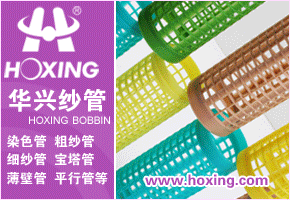World's first global organic cotton campaign launched
Major players in the international textiles industry are challenged to sign up to organic–the most reliable and trustworthy standard of sustainable textiles production.
Speaking at the Sustainable Textiles Conference in Hong Kong, Lord Peter Melchett–Policy Director of the UK’s Soil Association–asked textile industry leaders:“Have you cottoned on yet?”
Echoing the slogan of the campaign and website launched today (www.cottonedon.org), Lord Melchett called on the industry to put a halt to the global environmental damage and threats to cotton farmers’livelihoods caused by conventional cotton farming and processing.
Up to 80% of world cotton production currently comes from Genetically Modified (GM) crops (with 95% of the seed in India controlled by one company: Monsanto). In addition, more than U.S. $3 billion worth of pesticides that can cause a variety of risks to humans and the environment were used on conventional cotton in 2010.
At the same time, worldwide demand for organic cotton is set to grow by at least 10% in 2011-2012.
But some brands are failing to commit to organic standards, opting instead for easier, lower-level schemes or worse–nothing at all. Without commitment from brands, it is the farmers and the environment that bear the social, environmental and economic risks associated with cotton production:
"Organic cotton is proven to deliver positive benefits for people and the environment. When it comes to making sustainability claims you can trust, nothing beats it.”Lord Peter Melchett, Policy Director, Soil Association
The campaign is launched by the Soil Association and the Global Organic Textile Standard (GOTS), the leading standard for organic textile processing.
The campaign is detailed in a briefing paper released today,“Have You Cottoned On Yet?”, which spells out the 5 unique benefits of organic production
1. Give control to farmers, not GM companies Organic farmers don't have their choices controlled by GM companies
2. Eliminate hazardous synthetic pesticidesOrganic cotton doesn’t use dangerous pesticides, protecting farmers’lives and the environment
3. Help farmers feed their families Organic cotton enables farmers to grow other crops for food and income
4. Save precious waterOrganic cotton uses less water, preserving a scarce and precious resource for the future
5. Combat climate changeOrganic cotton farming uses less energy and healthy organic soils store more CO2
"Consumers can be sure that a product carrying the GOTS symbol is not only produced with a minimum of 95% organic fibre content but is also processed to strict environmental and social criteria”, says Claudia Kersten, GOTS Marketing Director.
The Global Organic Textile Standard (GOTS) was developed by the Organic Trade Association (USA), IVN (Germany), Soil Association (UK) and Japan Organic Cotton Association -JOCA (Japan) and launched in 2006.







